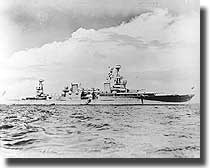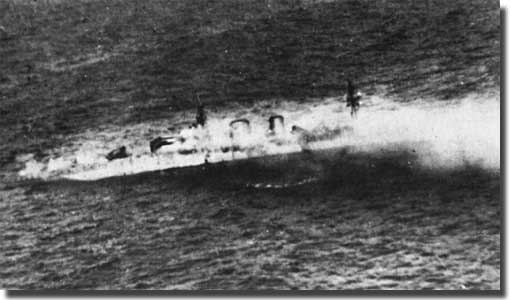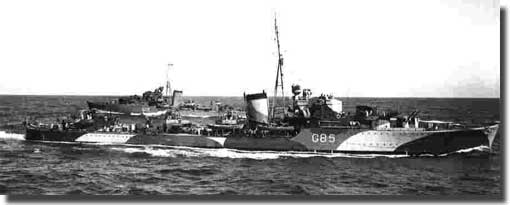|
Introduction.
On the night of the 27/28th. of February in 1942, two Dutch light cruisers, De Ruyter and Java were destroyed by torpedoes from the Japanese cruisers Nachi and Haguro.
Battle of the Java Sea.
Under the command of the Dutch Rear Admiral Doorman, an Allied naval force of 5 cruisers and 11 destroyers were in the Java Sea close to Surabaya, to attack a Japanese naval group supporting a Japanese invasion convoy on its way to Java.
USS Houston
 |
This motley group of cruisers comprising the British Exeter, the United States Houston, the Australian Perth, and the Dutch De Ruyter and Java, supported by 11 destroyers took on the Japanese force of two heavy cruisers, two light cruisers and their 14 destroyer escorts.
HMS Exeter
 |
At about 1600 ( 4 PM ) on the 27th. of February 1942, this running battle commenced, and Exeter was soon hit reducing her speed, the Dutch destroyer Kortenaer torpedoed and sunk, the British destroyer Electra sunk by gunfire, and another British destroyer Jupiter sunk after picking up a Dutch laid mine.
HMS Jupiter
 |
About midnight on the 27/28th. of February, the Dutch light cruisers De Ruyter and Java were blown to pieces by Long Lance 24 inch torpedoes emanating from the Japanese cruisers Nachi and Haguro.
Rear Admiral Doorman and 345 crew members from De Ruyter were lost with the sinking of this 7,548 ton ship.
HMAS Perth and USS Houston both made for Java, only to be sunk later at the Battle of Sunda Strait.
Finding the Dutch light cruisers.
On the 1st. of December 2002, an International Diving Team working from MV Empress, and using side scan sonar equipment were seeking the British cruiser Exeter off Bawean Island north of Java, when they came across the two Dutch light cruisers De Ruyter and Java.
The former ship had been built in Amsterdam by Wilton Fijenoord in 1935, and was found, sitting partly upright but listing well to starboard, at a depth of 69 metres.
The second cruiser Java, a much older ship having been built in 1916, was found in 67 metres of water, also sitting on her bottom, and listing a lot to starboard.
Conclusion.
Determined divers, aided by modern under water equipment continue to prise secrets from the world’s oceans, as more and more of WW2’s sunken naval ships, are discovered sitting on the bottom where they have rested for the last 60 years or so.
|